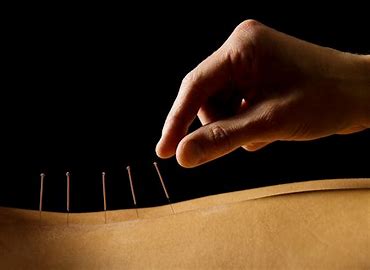
Introduction
Struggling with fertility issues can be emotionally and physically draining. While modern treatments like IVF and hormone therapy are common, many couples are turning to acupuncture for fertility as a natural, complementary approach. Research suggests that acupuncture may improve reproductive health by enhancing blood flow, balancing hormones, and reducing stress—key factors in conception.
In this comprehensive guide, we’ll explore:
- How acupuncture supports fertility
- Scientific evidence on its effectiveness
- The best acupuncture points for fertility
- How it enhances IVF success rates
- What to expect during a session
- Frequently asked questions
By the end, you’ll understand whether acupuncture for fertility could be the missing piece in your conception journey.
How Does Acupuncture Improve Fertility?
Acupuncture, a key component of Traditional Chinese Medicine (TCM), involves inserting fine needles into specific points on the body to restore energy (Qi) flow. When it comes to fertility, acupuncture works through several mechanisms:
1. Regulates Hormones
Hormonal imbalances are a leading cause of infertility. Acupuncture helps:
- Stimulate the hypothalamus-pituitary-ovarian axis (HPOA), improving ovulation.
- Lower cortisol (stress hormone) levels, which can interfere with reproductive hormones.
- Increase progesterone levels, crucial for maintaining pregnancy.
A study published in Fertility and Sterility found that women receiving acupuncture for fertility had more regular menstrual cycles and improved ovulation.
2. Enhances Blood Flow to Reproductive Organs
Proper blood circulation ensures the ovaries and uterus receive adequate oxygen and nutrients. Acupuncture:
- Dilates blood vessels, improving endometrial lining thickness.
- Supports follicle development, leading to healthier eggs.
3. Reduces Stress & Anxiety
Stress triggers cortisol release, which can disrupt ovulation and sperm production. Acupuncture:
- Activates the parasympathetic nervous system, promoting relaxation.
- Increases endorphins, improving emotional well-being.
4. Improves Sperm Quality in Men
Male infertility contributes to nearly 50% of conception challenges. Acupuncture may:
- Boost sperm count, motility, and morphology.
- Reduce oxidative stress, protecting sperm DNA.
A Journal of Andrology study found that men who underwent acupuncture had higher sperm quality than those who didn’t.
Acupuncture for Fertility: What Does the Research Say?
Several clinical studies support acupuncture for fertility as a viable adjunct therapy:
1. Increases IVF Success Rates
A landmark study in Fertility and Sterility (2002) found that women who received acupuncture before and after embryo transfer had a 42% higher pregnancy rate compared to the control group.
2. Improves Ovulation in PCOS Patients
Polycystic Ovary Syndrome (PCOS) is a leading cause of infertility. Research in The Journal of Alternative and Complementary Medicine showed that acupuncture helped restore ovulation in PCOS patients by improving insulin sensitivity.
3. Supports Unexplained Infertility
For couples with unexplained infertility, acupuncture may improve conception rates by addressing subtle imbalances missed in conventional testing.
Best Acupuncture Points for Fertility
Acupuncturists target specific points to enhance reproductive health:
- Spleen 6 (SP6) – Regulates menstrual cycles and supports uterine health.
- Ren 4 (RN4) – Strengthens the uterus and improves blood flow.
- Stomach 29 (ST29) – Enhances ovarian function and egg quality.
- Liver 3 (LV3) – Balances hormones and reduces stress.
A trained fertility acupuncturist will customize treatments based on your unique needs.
What to Expect During an Acupuncture Session
- Initial Consultation – The practitioner reviews medical history, menstrual cycles, and fertility goals.
- Treatment Plan – Sessions are typically scheduled weekly, increasing frequency around ovulation or IVF cycles.
- The Session – Fine needles are inserted (painlessly) into key points while you relax for 20-30 minutes.
- Follow-Up – Progress is tracked, and adjustments are made as needed.
Most patients report deep relaxation and reduced stress after sessions.
Acupuncture & IVF: A Powerful Combination
Many fertility clinics recommend acupuncture alongside IVF because:
- Pre-transfer acupuncture prepares the uterus for implantation.
- Post-transfer sessions improve blood flow to support embryo attachment.
- Stress reduction enhances overall treatment success.
A meta-analysis in BMJ Open (2019) confirmed that acupuncture significantly improves IVF outcomes.
FAQs About Acupuncture for Fertility
1. How many sessions are needed?
- General fertility support: 1-2 sessions per week for 3-6 months.
- IVF support: More frequent sessions before and after embryo transfer.
2. Are there any side effects?
Acupuncture is safe when performed by a licensed practitioner. Minor bruising or dizziness may occur but is rare.
3. Can acupuncture help with male infertility?
Yes! Studies show it improves sperm count, motility, and DNA integrity.
4. When should I start acupuncture for fertility?
Ideally, 3-6 months before conception (or IVF) for optimal results.
Conclusion: Is Acupuncture Right for Your Fertility Journey?
Acupuncture for fertility offers a natural, evidence-based way to enhance reproductive health. Whether used alone or alongside IVF, it can regulate hormones, improve blood flow, and reduce stress—key factors in conception.
If you’re considering acupuncture, consult a licensed fertility acupuncturist to create a personalized plan. With patience and consistency, this ancient practice may help you achieve the pregnancy you’ve been dreaming of.


